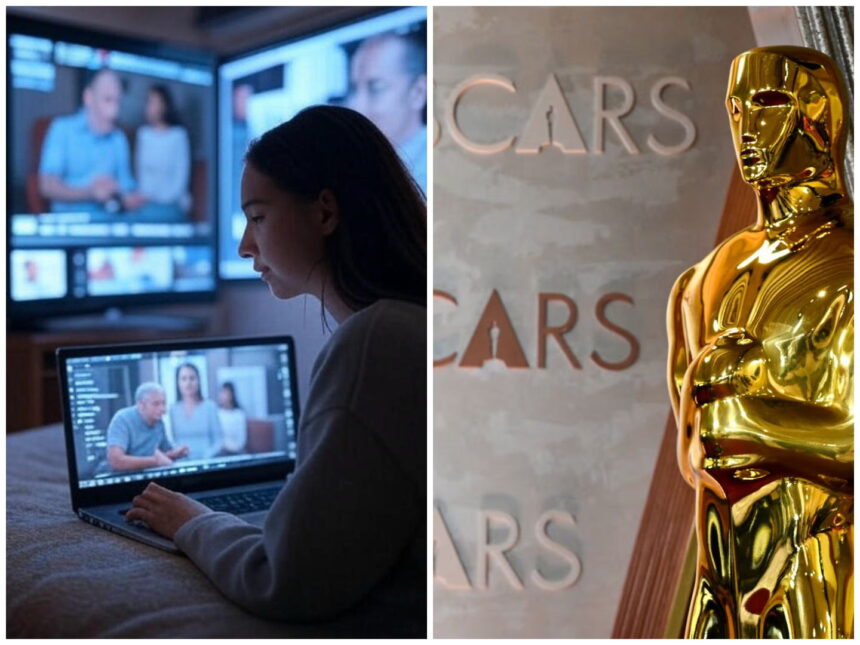The Academy of Motion Picture Arts and Sciences dropped a bombshell in April 2025: starting with the 98th Academy Awards in 2026, Oscar voters must watch every nominated film in a category before casting their ballots. It's a rule that sounds like common sense—how could you vote for the best without seeing the contenders? Yet, the announcement sparked a mix of applause, disbelief, and outright skepticism. Were voters really just picking winners based on vibes? And will this new rule, dubbed “the ‘Brutalist' Rule” after last year's overlooked 215-minute epic, actually ensure fairer voting, or is it just a shiny badge of honor for an industry built on trust—and loopholes?
The Rule: Watch or Don't Vote
Announced on April 21, 2025, the new policy applies to all 24 competitive Oscar categories, from best picture to the newly introduced casting award (Academy Press Office). Voters must confirm they've watched every nominee in a category to unlock their ballot for that race during the final voting phase. For example, to vote for best picture, you'd need to watch all 10 nominees, like 2025's Anora or The Substance. The Academy's goal? To curb “coattail voting,” where voters back a film or performance based on reputation, buzz, or a slick awards campaign rather than actual viewing.
The enforcement mechanism blends tech and trust. Films watched on the Academy Screening Room (ASR), a secure digital platform launched in 2020, are automatically logged when viewed in full. For viewings outside the ASR—at theaters, festivals, guild screenings, or private events—voters submit a simple online form stating when and where they watched. This form, however, operates on an honor system, a practice already used for specialty categories like documentaries and international features (Variety).
The Loopholes: Gaming the System
Here's where things get murky. Some voters are already bragging about dodging the rule. Variety reports that members have found ways to “game the system” by letting films play in the background while they answer emails, scroll X, or even leave the house (Variety). “As long as the app registers that it played, that's all that matters,” one voter gloated. Another admitted to starting a film before heading to work, letting it run unattended. It's a loophole as old as a middle schooler skimming CliffsNotes instead of reading the book—and it's raising eyebrows.
The issue hit a nerve with The Brutalist, a 215-minute A24 drama that earned 10 nominations and three wins in 2025, despite whispers that some voters never watched it or only half-paid attention (Variety). The film's length and dense narrative made it a prime candidate for passive viewing, prompting speculation that the new rule was inspired by its case. If voters can still mark a film as “watched” without engaging, what's the point?
Reactions: Applause, Laughter, and Doubt
The announcement triggered a wave of reactions, from industry insiders to fans on X. Many were stunned that watching all nominees wasn't already mandatory. “Were they just voting on vibes?” one X user quipped, capturing the disbelief (The Guardian). Comedian Bruce Vilanch, a veteran of 25 Oscar shows, called the rule “kind of hysterical,” adding, “Like Casablanca, I am shocked, shocked to discover that there are academy members who don't watch all the movies” (The New York Times).
Some industry voices welcomed the change. “This was overdue,” a producer told Variety, echoing sentiments from members who've long pushed for stricter voting standards (Variety). The Academy itself framed the rule as a way to “strengthen the integrity and credibility of the awards process” (Variety). But skepticism runs deep. NPR's Linda Holmes argued that while the rule is “a start,” it won't fix the Oscars' deeper issues. “Much Oscar voting has little-to-no integrity,” she wrote, citing anonymous “honest Oscar ballot” interviews where voters admitted to skipping nominees (NPR).
Historical Context: A Pattern of Reform
The Oscars have faced scrutiny over voting integrity before. In 2020, the Academy launched the Screening Room to replace DVD screeners, tightening security but not fully addressing viewing habits (Variety). That same year, new representation and inclusion standards were introduced for best picture eligibility to promote diversity, reflecting a broader push for fairness (Oscars.org). The 2025 viewing rule is another step in this ongoing reform, but it's not the first time the Academy has relied on trust. Specialty categories like documentaries and shorts have long used honor-system forms, with mixed results (Variety).
Compare this to past controversies, like the 2017 best picture mix-up when La La Land was mistakenly announced over Moonlight. That incident exposed logistical flaws, but it also fueled debates about whether voters were truly engaging with diverse films. The new rule aims to level the playing field, especially for smaller films like I'm Still Here or Nickel Boys, which might lose out to blockbusters like Dune: Part Two without mandatory viewing (Rotten Tomatoes). Yet, without stricter enforcement, it risks becoming another well-intentioned but toothless reform.
The Stakes: Fairness vs. Trust
The rule could reshape awards campaigning. Studios for smaller films might push harder for screenings, knowing voters are obligated to watch. But the honor system remains a weak link. One Executive Branch member put it bluntly: “The whole system's based on trust. And trust in Hollywood? Bullshit” (Variety). If voters can still fake their way through, the Oscars' credibility takes a hit. Imagine a world where The Substance loses to Wicked because voters skipped the former's bold horror for a safer musical—hardly the meritocracy the Academy claims to champion.
On the flip side, the rule might encourage more thoughtful voting, especially for categories like best picture, where 10 diverse films compete. Data from the 2025 Oscars shows a varied slate, from Anora's five wins to The Brutalist's three, suggesting voters can reward bold choices when they engage (NPR). The question is whether the new rule will push voters to actually press play—or just keep pretending.
A Deeper Dive: Why Do Voters Skip Films?
Why are some voters so reluctant to watch every nominee? Time is one factor. With up to 10 best picture nominees, plus dozens more across other categories, the commitment is daunting. The Brutalist's 215-minute runtime alone could deter busy professionals. Another issue is access. While the Screening Room offers convenience, not all voters use it, and external screenings aren't always easy to attend. Then there's apathy. One voter confessed to Variety that they hadn't even heard of half the 2025 nominees, a damning admission for an Academy member.
This raises a provocative question: if watching films feels like a chore, why vote at all? The Academy's 10,000-plus members include artists, filmmakers, and executives, but not all are equally invested in every category (Oscars.org). Perhaps the solution isn't just mandating viewings but rethinking who gets a ballot—or how many categories they can vote in.
What's Next?
The 2026 Oscars, set for March 15, will be the first test of this rule. Will voters embrace their duty, or will loopholes undermine the effort? The Academy could tighten enforcement—say, by requiring proof of attendance at external screenings or monitoring Screening Room activity more closely—but that risks alienating members who value flexibility. For now, the rule is a step toward fairness, but as Linda Holmes notes, “It won't fix the Oscars” (NPR).
So, here's the uncomfortable truth: the Oscars are only as good as the voters behind them. If they're just hitting play and walking away, no rule will change the game. What do you think—will this make the Oscars fairer, or is it just Hollywood's latest sleight of hand? Drop your thoughts below.
| Aspect | Details |
|---|---|
| Rule Effective | 98th Academy Awards, March 15, 2026 |
| Categories Affected | All 24 competitive categories, including best picture, acting, and casting |
| Enforcement | Academy Screening Room tracking; honor-system form for external viewings |
| Goal | Reduce coattail voting, promote informed choices |
| Loopholes | Playing films unattended, passive viewing, or falsifying forms |
| Key Reactions | Mixed—praise for intent, skepticism over enforcement |
| Historical Precedent | 2020 Screening Room launch, 2020 inclusion standards |














